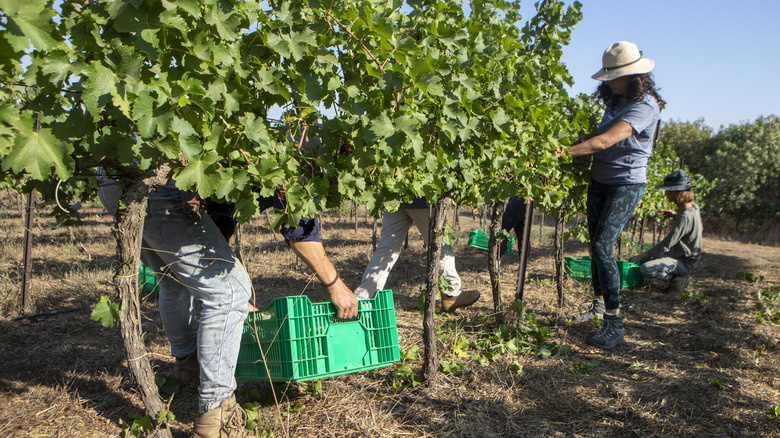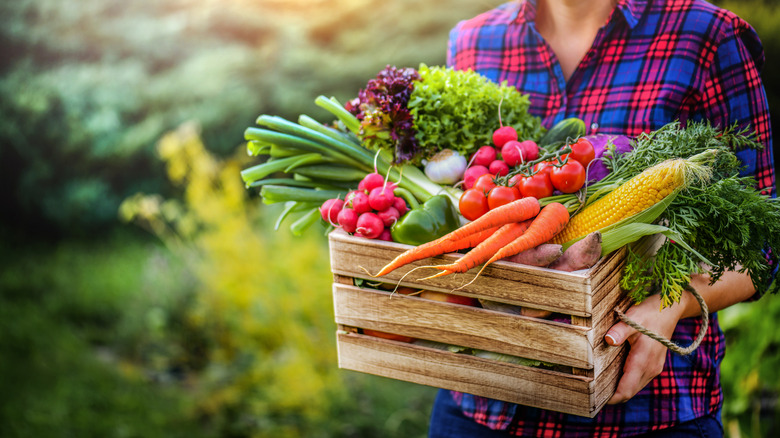How Organic Food Is Lying To You
When the topic of organic food comes up, many people associate the phrase with images of health and wholesome produce. But contrary to popular belief, the term "organic" might mean something different than what you expect.
According to the USDA, organic produce has to get grown using soil that lacks synthetic fertilizer or pesticide, while organic meat has to get raised in a living condition that mimics their natural surroundings, feed on organic foodstuffs, and not receive antibiotics or hormones. While these requirements sound straightforward enough, the conditions leave enough wiggle room for companies to slip products through the cracks that might seem less wholesome than imagined.
The New Yorker reports that a product that gets labeled as organic might not actually fit the USDA definition. If a nearby farm uses certain chemicals that waft through the air and land on a neighboring plot's organic agriculture, for example, the items no longer meet the definition of organic. The only way to test for the contamination involves testing for residue, a process which America doesn't carry out.
Additionally, anyone looking to get an organic certification has to prove that their soil is pure, in the sense that farmers didn't grow anything conventionally on the land for at least three years, per CNBC. To establish this fact, farmers have to provide a paper trail and a series of documents to regulators — but in many cases, the soil never gets tested for pesticides or other non-organic compounds. As a result of this style of regulation, a considerable amount of fraud has appeared.
There are gaps in the way America handles organic agriculture
In response to a growing organic food industry, the government established Organic Land Management, an arm of the U.S. Department of Agriculture, per The New Yorker. This group, responsible for the certification of organic land, requires a payout from farmers looking to get their land declared organic. As a result, some have criticized the system, claiming the pay system promotes bribery and discourages whistleblowing by creating a conflict of interest.
Some do decide to sell organic produce, except they cut corners and create a product that doesn't qualify as organic. On occasion, perpetrators get discovered by the government and get indicted for fraud — at least one man, who died by suicide before his sentence began, was sentenced to 10 years in prison (per AP News), for allegedly organizing a massive, $142 million organic food fraud.
Others have admitted mixing organic products and non-organic produce together, claiming buyers can't tell the difference, according to The New Yorker. Due to the lack of thorough testing, many farmers and food producers mislabeling their items never get punished because no one knows they actively commit fraud.
Next time you wonder about the supposed health benefits found in your organic groceries, stop to consider how food inspectors rarely verify a product's claim to be organic. While many of these products most likely won't cause harm, you might just end up overpaying for food that resembles any other product on the shelf.

